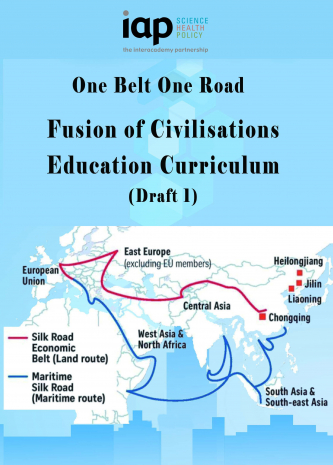Education plays a key role in producing citizens of today for tomorrow. Various subjects are introduced into the education program to ensure that major educational goals such as being able to problem-solve and think critically, be creative, care and want to give back to their community, persevere, have integrity and self-respect, have moral courage and be able to use the world around them well. The idea of implementing the fusion of civilisation curriculum in the existing educational program has been debated since lately. It has been thought and believed as the new approach to promote world peace and harmonious human life among students from young age. By understanding and having good perception of different civilisations that contribute to present day knowledge, children will appreciate the need and importance to live in peace and harmony. Based on this premise Fusion of Civilization Education (FoCEd) Curriculum has been formulated and develop to address and fulfil the needs. The project arose out of the need to inculcate peace and harmony through evidence based science education for children in the light of the current conflict and increase in violence in societies, and terrorism resulting in atrocities and displaces persons.
There is a need to develop a curriculum on the fusion of civilisations highlighting the discoveries and contributions of culture, trade, science and technology from each civilisation and their beneficial impacts on other civilisations through the land and oceanic silk roads. It will hopefully instil respect amongst the young and promote tolerance, understanding and respect for one another’s culture and tradition. FoCEd curriculum is formulated in line with thinking that connectivity of discoveries in each civilisation along the Belt and Road (B&R) Initiative and how such discoveries influence the cultures and civilisations for the betterment of human condition along the B&R countries and regions. Understand-ing the connectivity between neighbouring cultures and civilisations among children could be an approach to instil the awareness of the importance of living in peace and harmony. The content of the curriculum also include the role of the great travellers along the B&R that helped to spread the fusion of B&R civilisations. The “Fusion of OBOR Civilizations Curriculum Design” project is given modern relevance by China's “One Belt One Road” (OBOR) Initiative that aims to uplift the human conditions of the developing world by physical, cyber and cultural connectivity.
This IAP SEP project anchors itself on the tenets of the Islamic Golden Age:
- Seek and share knowledge freely throughout the world;
- Be knowledgeable not only in science, but also in religion, poetry, literature, music and the arts
Two IAP SEP Forums were held to discuss the concept amongst S&T historians and curriculum designers in Khartoum Sudan, February 2017 and Beijing, China July 2017. This workshop assembled a working group of curriculum designers and science communicators to get down to work on the school curriculum. This was followed by a working group workshop in Kuala Lumpur which refined the document prepared, collect detailed information related to the framework and compiled data and prepared the first draft of the curriculum. Another workshop was held in Islamabad, Pakistan which looked at the draft of materials

